« Les Sorcières Théoriciennes »
« Les Sorcières Théoriciennes »
Workshop de recherche L.i.p Collective sur les publications féministes, avec Le Signe – Centre National de Graphisme, le collectif common-interest et la journaliste Madeleine Morley, 2020.
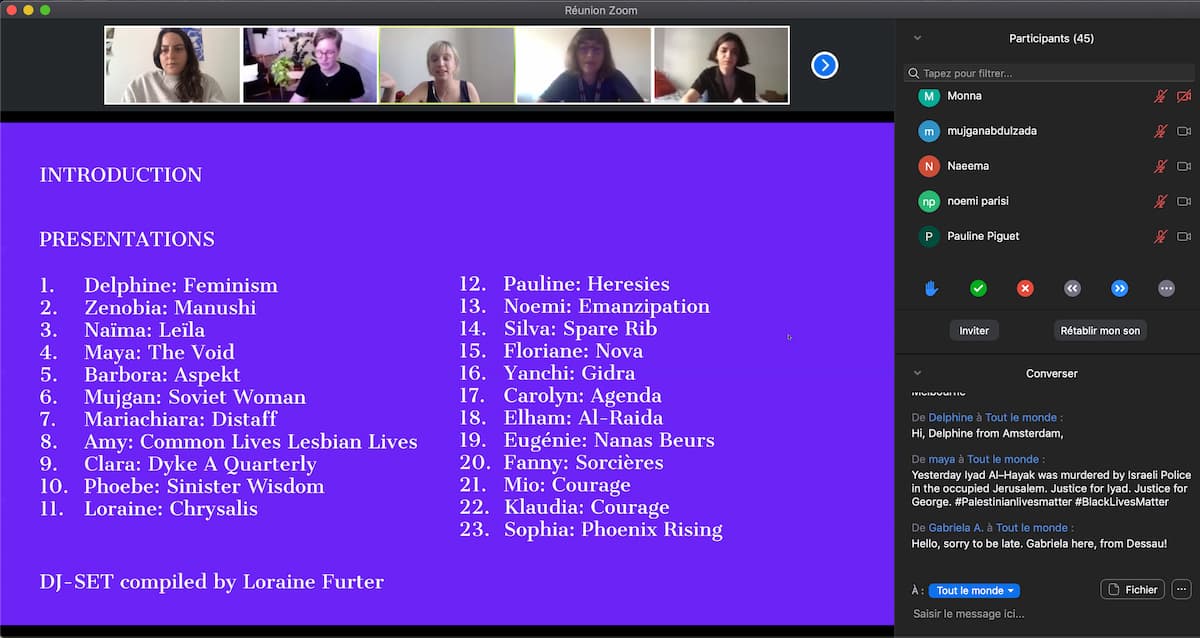
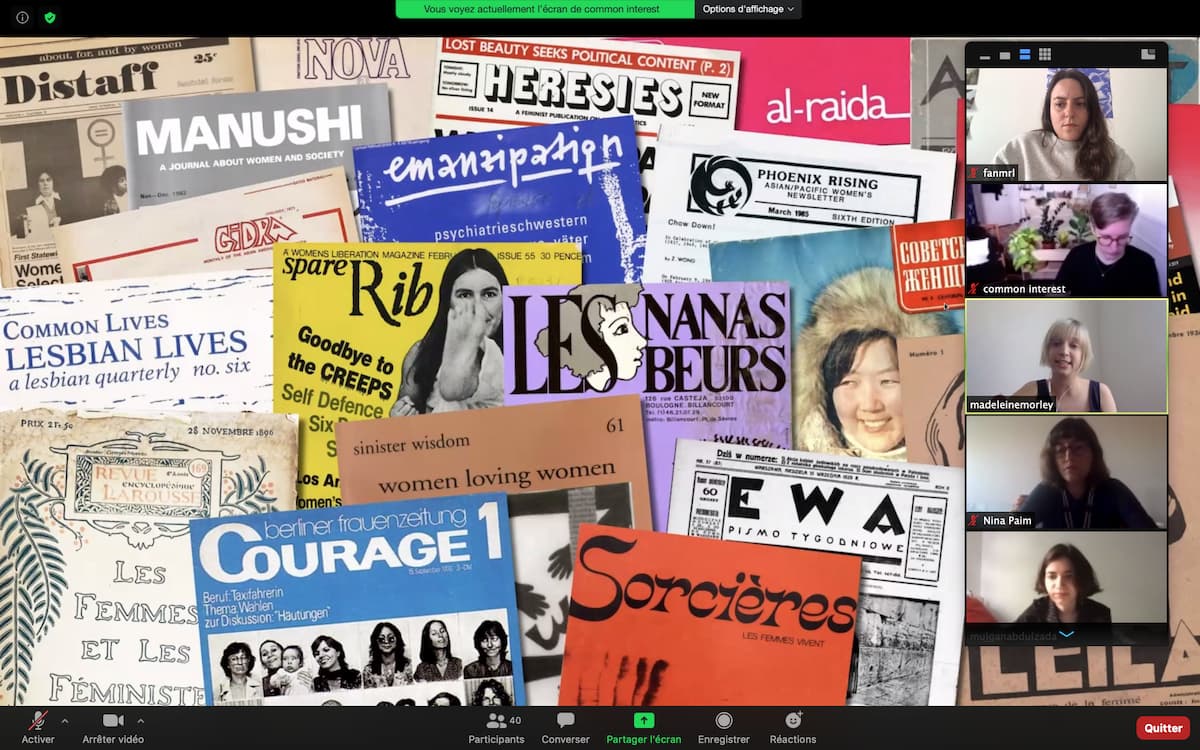
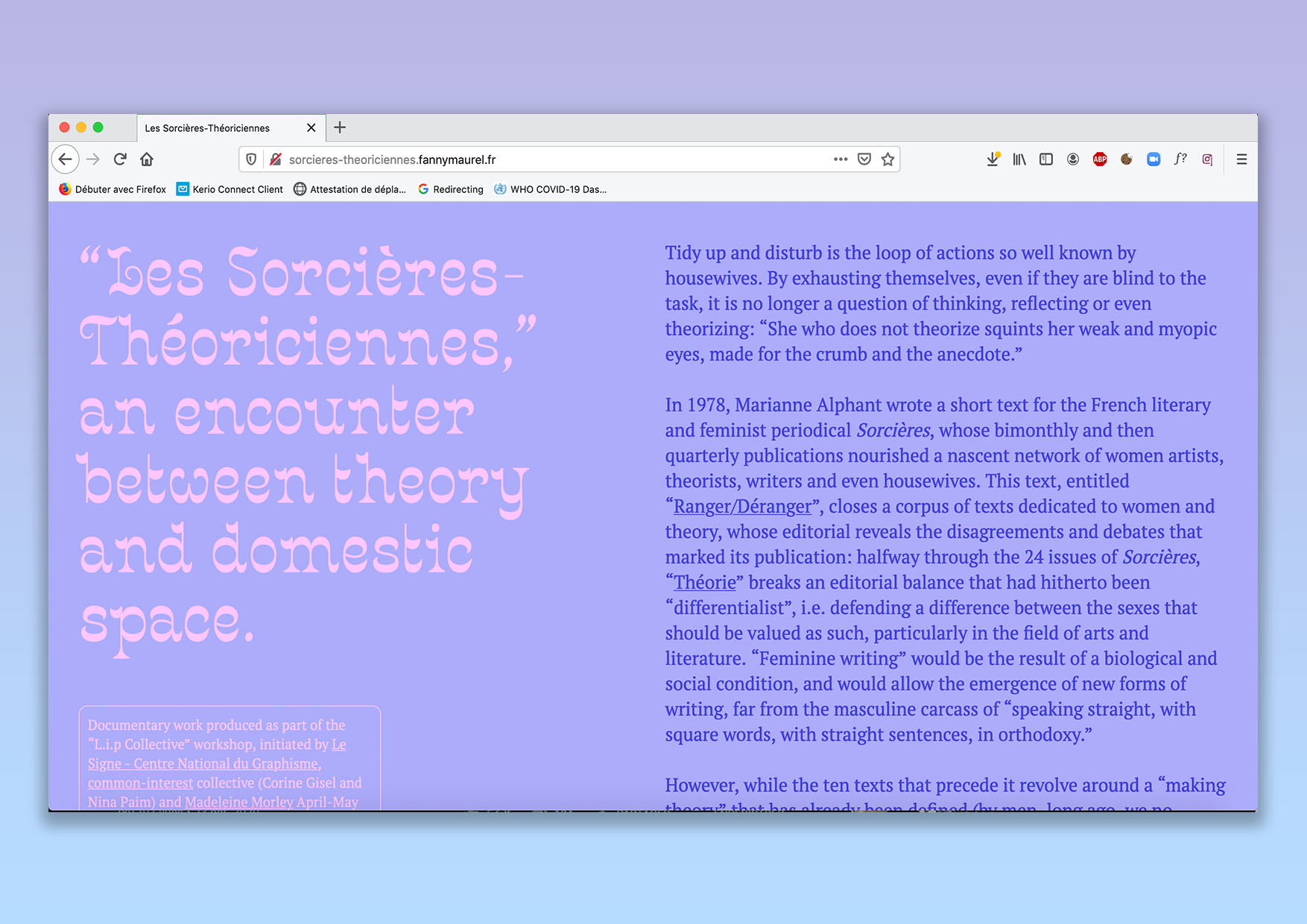
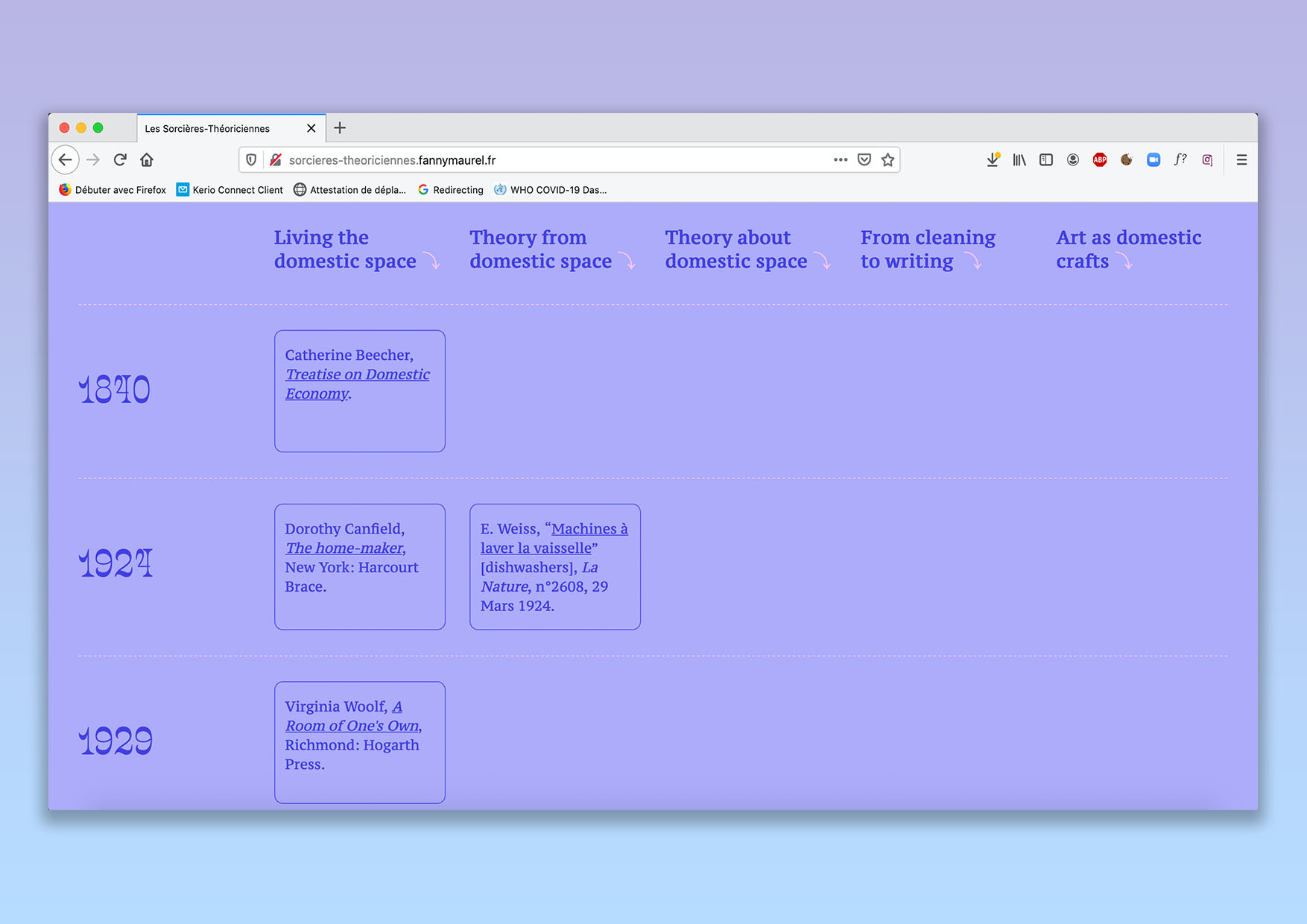
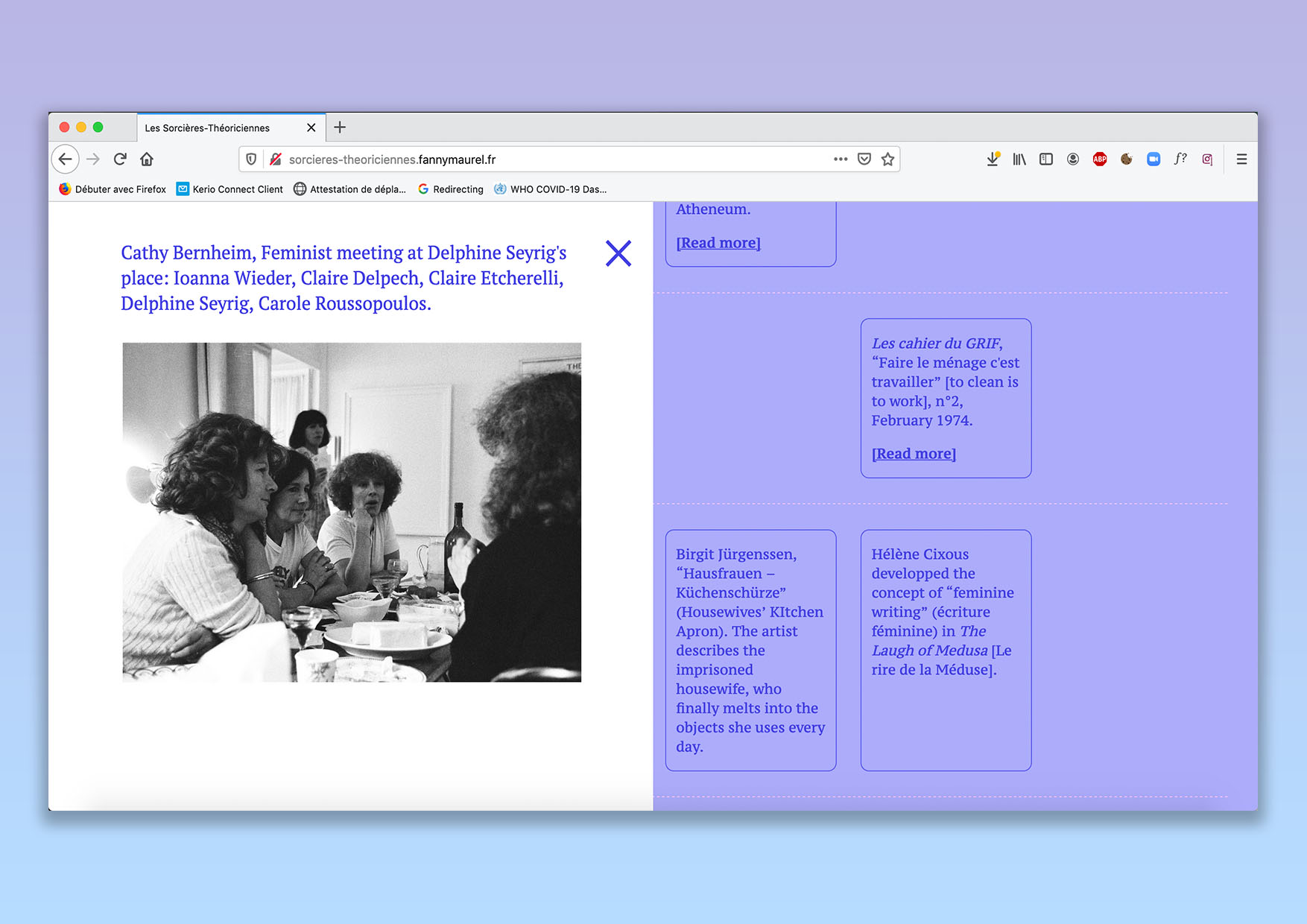
Consulter le site web ou le premier document de travail
Le Signe – Centre National de Graphisme a organisé au mois de mai 2020 une série de workshop à distance, dont le workshop L.i.p Collective, avec le collectif common-interest et la journaliste Madeleine Morley, qui a réuni des chercheuses, étudiantes et designeuses du monde entier pour agréger des recherches sur des publications féministes des années 1970 – 1990.
Ma réflexion s’est portée sur un article intitulé « Ranger/Déranger », trouvé dans le n°12 de la revue littéraire et féministe Sorcières (1978), dont j’avais un exemplaire à domicile. Les quelques 7 000 signes qui composent ce texte écrit par Marianne Alphant clôturent un corpus de textes qui interrogent les pratiques de la théorie et la manière dont les femmes s’en saisissent. Alors que les dix textes qui le précèdent gravitent autour d’un « faire théorie » d’ore et déjà défini (par des hommes, il y a longtemps, on ne sait plus), « Ranger/Déranger » détricote la théorie, lui fait côtoyer l’ordinaire, le quotidien, les casseroles et les miettes, l’associe aux « manipulations d’un esprit bricoleur, mécano, couturière, [à] un art d’accommoder : les restes, les manières, les ossements, les mots ».
Beaucoup de questions émergent de cette lecture, le goût amer d’une domesticité toujours plaquée sur les pratiques des femmes, et pourtant l’enthousiasme pour une « théorie sur/depuis l’espace domestique », la curiosité pour les pratiques invisibles de femmes en quête de savoirs. Mais surtout : Quelles sont les conditions d’existences de ce texte, comment habite-t-il son temps, de quoi découle-t-il et qu’est-ce qu’il en résulte ?
J’ai donc conçu un corpus de ressources reliées à la rencontre entre théorie et espace domestique qui permettent de comprendre le contexte dans lequel émerge ce texte.